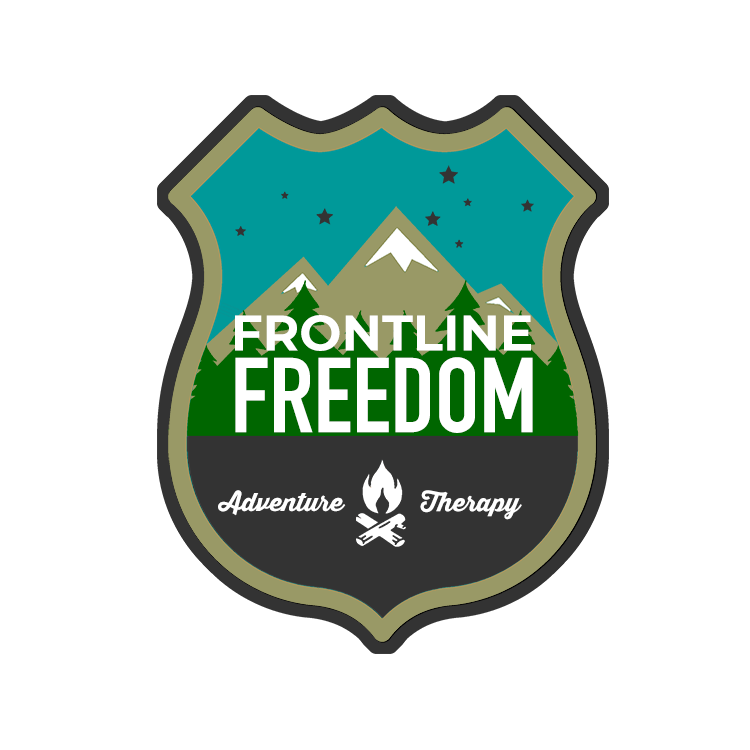Articles

How To Regain Control Of Your Schedule And Get Your Life Organized
The demands of being a first responder leader can be overwhelming. You are constantly needed by others and are expected to be available at a moment’s notice. This leaves little room for anything else, let alone time to focus on your well-being. It’s no wonder that so many leaders burn out. But it doesn’t have to be this way. You can regain control of your schedule and organize your life with simple tips.
Wake Up Early
One of the best ways to get ahead of the game is to wake up early. Use those extra morning hours to plan your day, catch up on emails, or take time for yourself. Not a morning person? No problem. Just set your alarm for 5 minutes earlier than you usually would and work your way up to waking up at least an hour before you need to leave for work. You’ll be surprised at how much you can accomplish when you start your day with a clear head.
Create A Daily Schedule
Another way to regain control of your time is by creating a daily schedule and sticking to it as much as possible. Of course, there will always be days when things come up, and you have to deviate from the schedule, but having one in place will help you stay on track the rest of the time. Be sure to include buffer time in your program if something arises. That way, you won’t fall behind because you didn’t consider the unexpected.
Take Time For Yourself
Remember that you can’t pour from an empty cup. To be effective in your role, you need to care for yourself mentally and physically. Make sure to schedule some “me” time into your day, even if it’s just for 15-20 minutes. During that time, do something that brings you joy or relaxes you. This could be reading, walking, listening to music, or other things. The important thing is that you make time for yourself every day to recharge and be ready to face whatever comes your way.
Conclusion
Being a first responder leader is demanding, but it doesn’t have to consume your entire life. Following these simple tips, you can regain control of your schedule and organize your life.

Finding Meaning
In Viktor Frankl’s writing, the topic of logotherapy is discussed. Within that framework, the concept of how we find meaning or purpose in our lives comes in three forms. The first is focused on actions creating meaning. This meaning comes from doing things, having experiences, and creating memories. It is the meaning we often think of when discussing living a full life.
While this is the least discussed, it is an important topic to examine further. It makes us question the entirety of our motivations for completing tasks – what could be more important than finding out why we’re doing what we’re doing?
The happiest people have a connection between their actions and their vision of society. More importantly, they can connect how their efforts improve the world. A person with this outlook can see their own life as valuable, and they are constantly reminded of the importance of their actions – they know that they’re not just going through the motions but making a real impact.
The concept of finding your meaning through actions is again taught in the fable of the three masons. The masons are each asked what they are doing.
The first says he is laying bricks, the second says he is building a wall, and the third says he is creating a cathedral.
The first two have a job to do, and they see their task as simply completing that job. The third mason has a higher purpose. He is building something that others will use, lasting long after he is gone.
The three masons provide a great example of how we can find meaning in our lives. The first two are Content with simply completing their task, while the third has a higher purpose and sees his actions as having a more significant meaning. This gives him a sense of satisfaction that the other two do not have.
Frankl is making the point that to have fulfillment, we must find the vision behind our actions. So, ask yourself, what is your vision? Are you a police officer? Have you lost sight of how important that job role has become? If so, remember that you are not just doing a job. You are fulfilling a higher purpose. Remember that what you are doing matters, and it is up to you to make it count.
It is no wonder that society is fighting over who supports the police. Society forgot for a while how vital that role is. Now we see rising murder rates, thefts, and violent crimes. While it may not always seem like it, the action of policing contributes to a better quality of life and society.
Find meaning in your every day. Put actions into vision. Be a beacon of hope to those around you.

Benefits of Mentorship
Becoming a mentor can benefit both the mentor and the mentee. Mentors often enjoy a sense of satisfaction from helping others reach their potential. In addition, mentoring can help keep you sharp and up-to-date on industry trends, as you constantly learn new things from your mentee. And finally, as a mentor, you develop essential networking connections that could lead to future opportunities.
Sounds great, right? Yet, I am frequently asked how to get started when discussing mentorship. Most companies boast mentorship abilities yet, have no official guidebook on where to start.
What is a mentor?
A mentor is a professional willing to offer a mentee career advice and leadership skills. The mentor’s responsibilities include meeting with the mentee regularly, providing support and guidance, and answering any questions the mentee may have. Some common yet unsurprising questions mentors are asked include:
- – How can I change careers?
- – Should I go to graduate school?
- – How do I network?
- – What are the best ways to market myself?
- – How do I negotiate a salary?
- – What should I wear for my job interview?
What’s in it for me?
The benefits of being a mentor are many. Mentors often enjoy a sense of satisfaction from helping others reach their potential. In addition, mentoring can help keep you sharp and up-to-date on industry trends, as you constantly learn new things from your mentee. And finally, as a mentor, you develop essential networking connections that could lead to future opportunities.
Mentors have the opportunity to develop essential networking connections with other professionals in their industry. These connections could lead to future options, such as job openings or business partnerships. In addition, mentorship relationships often result in solid friendships that last for many years. According to a study by the National Mentoring Partnership, mentored youth are 52% more likely to enroll in college and are almost twice as likely to be employed.
How do I become a mentor?
There are several ways to become a mentor. The best way to find out how to become one is by contacting your local chapter of The Association for Talent Development (ATD). They will be able to provide you with more information on becoming a mentor and connect you with other professionals in your area who are also mentors. You can also search online for resources that cater specifically to mentoring relationships. Many websites and articles offer tips on how to be an effective mentor.
How do I find the right mentee?
The best way to find a mentee is by networking with people in your industry or field. You can also reach out to professional organizations or schools that offer programs for mentor-mentee relationships. Once you have found a few potential mentees, setting up an initial meeting is crucial to get to know each other and see if there is a good fit. During this meeting, you should discuss expectations, goals, and commitments. It is also essential to ensure that you are both on the same page in terms of frequency and duration of meetings and communication style.
What to do during the mentoring process?
During the mentoring relationship, meeting regularly and discussing both the mentor’s and mentee’s goals is essential. The mentor should offer support and guidance while allowing the mentee to take charge of their career development. It is also vital to provide feedback and be available to answer any questions the mentee may have. In addition, the mentor should help the mentee develop a network of professionals in their industry.
Possible challenges of being a mentor
While being a mentor can be an enriching experience, some challenges come with the territory. One challenge is finding the time to commit to regular meetings and discussions. Another challenge is dealing with difficult personalities or situations. For example, if a mentee is going through a career transition, they may feel frustrated or anxious. Mentors must be patient and understanding while providing honest feedback and guidance.
Mentoring can be an advantageous experience for both the mentor and mentee. It is an opportunity to learn new things, gain essential industry connections, and make a difference in someone’s career. If you are thinking about becoming a mentor, reach out to your local ATD chapter or search online for resources on how to get started.
Mental Health and Mentorship
Mentorship is also an excellent way for people to gain access to mental health services. Many times, people do not feel comfortable seeking help from a professional or may not have access to mental health services. A mentor can provide emotional support and guidance during difficult times. They can also offer advice on how to deal with mental health issues. In addition, mentors can connect their mentees with resources such as therapy or medication if needed.
The benefits of mentorship are vast and diverse. Mentors have the opportunity to learn new things, make valuable connections within their industry, and provide guidance and support to those who need it most – all while improving their own and their mentee’s mental well-being in the process.

9 Reasons Why Backpacking is the Perfect Way to Find Yourself
When most people think about finding themselves, they imagine sitting in a therapist’s office, exploring their childhood and discussing their feelings. But there are other ways to find yourself, and one of the best is through backpacking. Here’s how it can help:
It encourages you to be present.
Backpacking requires your full attention. You must be aware of your surroundings and pay attention to your footing, so you don’t trip and fall. This forces you to live in the present moment, which can be a great way to find yourself.
It helps you appreciate nature.
When you’re out in nature, away from the hustle and bustle of everyday life, it’s easy to appreciate the beauty around you. Seeing firsthand how beautiful and vast the world is can help put your problems into perspective and give you a greater appreciation for life.
It allows you to disconnect from technology.
In today’s world, it’s easy to get wrapped up in technology and forget about the world around you. But when you’re backpacking, there’s no cell service or Wi-Fi, which gives you the perfect opportunity to disconnect from your phone and social media and focus on the present moment.
It gives you time to think.
You have a lot of time to think when you’re out on the trail. This can be an excellent opportunity to reflect on your life and figure out what you want most out of it. You can also use this time to brainstorm ideas and devise solutions to problems you’ve been having.
It helps you meet new people.
Backpacking is a great way to meet new people. When you’re out on the trail, you’ll meet other hikers looking for the same thing: an escape from the everyday grind. You can bond over your shared love of nature and adventure, and you may even make some lifelong friends.
It allows you to reset.
It can be easy to get overwhelmed and stressed out in our fast-paced world. But when you’re backpacking, you can forget your worries and focus on enjoying yourself. This can help you feel refreshed and rejuvenated like you’ve hit the reset button on your life.
It teaches you about yourself.
Backpacking can teach you a lot about yourself. You’ll learn how to push yourself physically and mentally when you’re out on the trail. You’ll also find out what you’re capable of and your limits. And as you overcome obstacles and reach your goals, you’ll gain confidence and learn more about who you are.
It helps you appreciate the little things in life.
When you’re backpacking, you must carry everything you need on your back, which means you can only bring the essentials. This forces you to think about what’s important to you and helps you appreciate the little things in life.
It gives you a sense of accomplishment.
When you finish a backpacking trip, you’ll feel a sense of accomplishment. You’ll be proud of yourself for pushing your limits and reaching your goals. And you’ll have memories and stories to last a lifetime.
Backpacking can be a fantastic way to find yourself. It encourages you to be present, appreciate nature, disconnect from technology, and think about what you want most out of life. It also allows you to meet new people, reset, and learn about yourself. If you’re looking for a way to explore who you are, backpacking may be perfect.

10 Essential Items for Backpacking
When it comes to packing for a backpacking trip, the options can seem endless. But a few pieces of gear are essential for any trip, regardless of when or where you’re going. Here is a list of the essentials, along with some tips on choosing the right gear for your needs.
1. Backpack:
You’ll need a backpack to carry all your gear. But there are a few things to consider when choosing a pack. First, think about the size. You want something big enough to hold everything you need but not so big that it’s cumbersome to carry. Second, consider the features. Look for a pack with plenty of pockets and compartments for organizing your gear and straps and loops for attaching gear to the outside of the pack. And finally, make sure the pack is comfortable to wear – look for one with adjustable straps and a padded back panel.
2. Sleeping bag:
A good sleeping bag is another essential piece of gear. When choosing a sleeping bag, you’ll need to consider the temperature range you’ll be camping in. Sleeping bags are typically rated for specific temperature ranges, so choose one that’s appropriate for the conditions you’ll be facing. You’ll also want to think about the weight and size of the sleeping bag. If you’re planning on doing a lot of hiking, you might want to choose a lightweight bag that packs down small. But if weight isn’t as much of a concern, you can opt for a warmer bag that takes up more space.
3. Tent:
A tent is another essential piece of gear for any backpacking trip. When choosing a tent, you’ll need to consider the size (how many people will be sleeping in it?) and the weight and packed size. Again, if you’re planning on doing a lot of hiking, you might want to choose a lightweight tent that packs down small. But if weight isn’t as much of a concern, you can opt for a bigger tent that provides more space and comfort.
4. Sleeping pad:
A sleeping pad is an essential piece of gear for two reasons. First, it provides insulation between you and the ground, which helps to keep you warm at night. Second, it adds padding and comfort, which can make all the difference after a long day on the trail. When choosing a sleeping pad, you’ll need to consider the size, weight, and packed size. Again, if you’re planning on doing a lot of hiking, you might want to choose a lightweight pad that packs down small. But if weight isn’t as much of a concern, you can opt for a bigger pad that provides more comfort.
5. Stove:
If you’re planning on cooking your meals on the trail, you’ll need a stove. When choosing a stove, you’ll need to consider the fuel it uses (propane, butane, white gas, etc.), as well as the weight and packed size. Again, if you’re planning on doing a lot of hiking, you might want to choose a lightweight stove that packs down small. But if weight isn’t as much of a concern, you can opt for a more powerful stove with more features.
6. Water filter:
A water filter is an essential piece of gear for any backpacking trip. It allows you to safely drink water from streams, lakes, and other natural sources. When choosing a water filter, you’ll need to consider the size, weight, and packed size. Again, if you’re planning on doing a lot of hiking, you might want to choose a lightweight filter that packs down small. But if weight isn’t as much of a concern, you can opt for a bigger filter that’s more powerful and has more features.
7. First-aid kit:
A first-aid kit is an essential piece of gear for any backpacking trip. It allows you to treat minor injuries and ailments on the trail. When choosing a first-aid kit, you’ll need to consider the size, weight, and packed size. Again, if you’re planning on doing a lot of hiking, you might want to choose a lightweight kit that packs down small. But if weight isn’t as much of a concern, you can opt for a more extensive kit with more items.
8. Navigation tools:
Navigation tools (such as a map and compass) are essential for any backpacking trip. They allow you to find your way in the wilderness and ensure you don’t get lost. When choosing navigation tools, you’ll need to consider the size, weight, and packed size. Again, if you’re planning on doing a lot of hiking, you might want to choose lightweight tools that pack down small. But if weight isn’t as much of a concern, you can opt for bigger tools that have more features.
9. Clothing:
The type of clothing you bring on your backpacking trip will depend on the climate and the time of year. In general, you should bring comfortable, durable, and easy to layer clothing. When choosing clothing for your trip, you’ll need to consider the weight, packed size, and climate. Again, if you’re planning on doing a lot of hiking, you might want to choose lightweight clothing that packs down small. But if weight isn’t as much of a concern, you can opt for more comfortable and durable clothing.
10. Miscellaneous items:
There are a few other miscellaneous items you might want to bring on your backpacking trip. These include sunglasses, sunscreen, insect repellent, and a headlamp. When choosing various items for your journey, you’ll need to consider the weight and packed size. Again, if you’re planning on doing a lot of hiking, you might want to choose lightweight items that pack down small. But if weight isn’t as much of a concern, you can opt for more comfortable items with more features.
As you can see, when choosing gear for a backpacking trip, there are many factors to consider. But by choosing the right equipment, you’ll make your trip more enjoyable and safer. So don’t be afraid to choose the right gear – it will be worth it in the end. And if you have any questions or need help choosing gear, don’t hesitate to contact us. We’re happy to help!

On Self-Improvement
It has been said that the unexamined life is not worth living. Many people would agree that self-improvement is one key to a good life. But what does it mean to improve oneself? And how should one go about it? And, how do we do it without falling trap of a hokey salesperson marketing their product as self-improvement? These are some of the questions that philosophers have wrestled with for centuries.
There are many different ways to improve oneself. One can work on their physical health, economic status, or relationships with others, but, at its core, self-improvement is a process of becoming a better thinker. To improve as a thinker, one must become more introspective and reflective. They must be able to examine their thoughts and actions and see where they can improve. This is not an easy task, as it requires a great deal of honesty and humility. But, if one can do it, they will find that their life will become much more fulfilling.
There are many resources available to help one become a better thinker. There are books, courses, and workshops on critical thinking, logic, and argumentation. These can all be helpful in learning how to examine one’s thoughts more critically. However, some of the most valuable resources for self-improvement are found within oneself. One of the best ways to improve as a thinker is simply to think about things more deeply. When faced with a problem or challenge, take the time to really consider all of the possible solutions. Weigh the pros and cons of each option, and try to come up with the best possible solution. This may seem like a lot of work, but it is well worth the effort.
President John Kennedy took the time to ponder why Khrushchev decided to place missiles in Cuba. President Kennedy likely avoided an incredibly deadly nuclear war by taking the time to improve his thought pattern and delaying the natural tendency to react.
Sometimes, self-improvement starts with a pause.
What does it look like?
When you think about improving yourself, what does that look like in your mind? If you’re anything like most people, you probably think about making some physical change, such as going to the gym more or eating healthier. And while there’s nothing wrong with that, if that’s all you focus on, you’re missing out on a lot of other potential areas for self-improvement.
We are more than just our bodies; we are also our minds and hearts. If we want to be truly well-rounded individuals, we need to take care of all three parts of ourselves. Focusing too much on the physical aspects of improvement can lead to neglecting the mental and emotional aspects of our lives.
That means finding ways to challenge and stimulate our minds so that we can continue to learn and grow. It means taking care of our emotional health so that we can be happy and fulfilled. And it means taking care of our physical health so that we can be strong and active.
Mental Resilience
Improvement of the heart and mind is incredibly important to become mentally resilient. A lot of people think that being mentally tough means never experiencing negative emotions, but that’s not the case. Mental toughness doesn’t mean you’re immune to hardship; it just means you have the ability to keep going even when things are tough.
That might mean taking on a new project at work or learning a new skill. It could also mean facing your fears and doing things even though they make you feel anxious or scared. By pushing yourself out of your comfort zone, you’ll become stronger and more resilient.
It’s also important to take care of your emotional health. This means making sure you have a good support system and taking time for yourself when you need it. It might mean reaching out to a friend or family member when you’re feeling down or taking a break from work to relax and recharge.
There is no one “right” way to improve oneself. What works for one person may not work for another. The important thing is to find what works for you and to stick with it.
Starting small is a key to making improvements work. In the book Atomic Habits, James Clear suggests combining new habits with existing habits to increase the likelihood of developing new habits. If reading more is your version of self-improvement, start by placing a book on the couch next to your TV remote. Having the book out and near something you are used to reaching for creates a habit of being able to grab the book and read a page or two prior to turning on the television. Small steps lead to great improvements throughout our lives. It is never too late to get yourself where you want to be.
